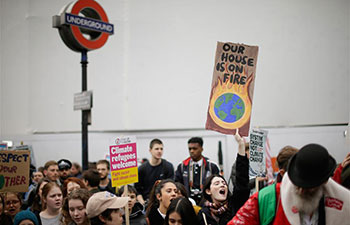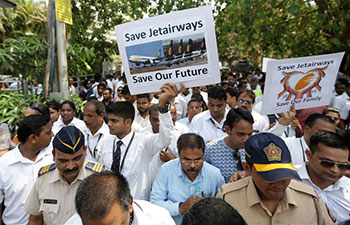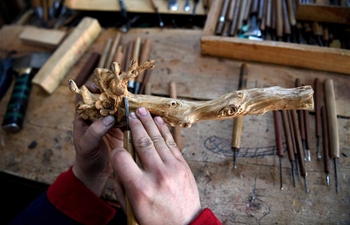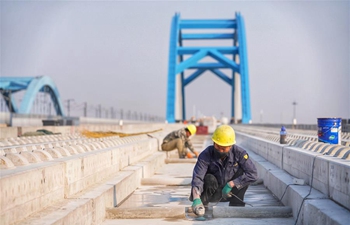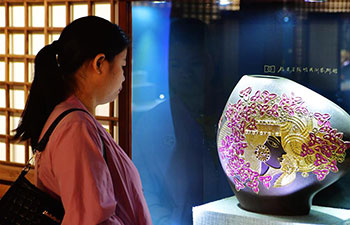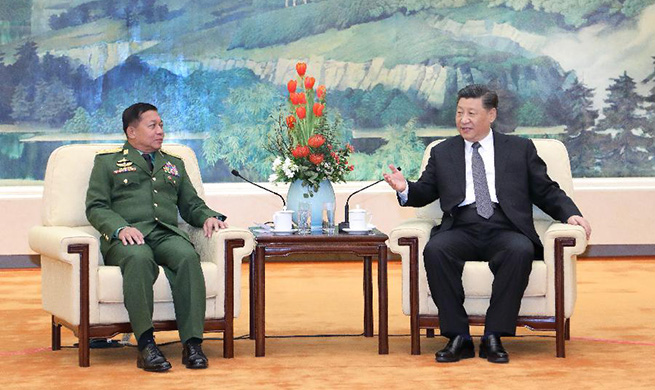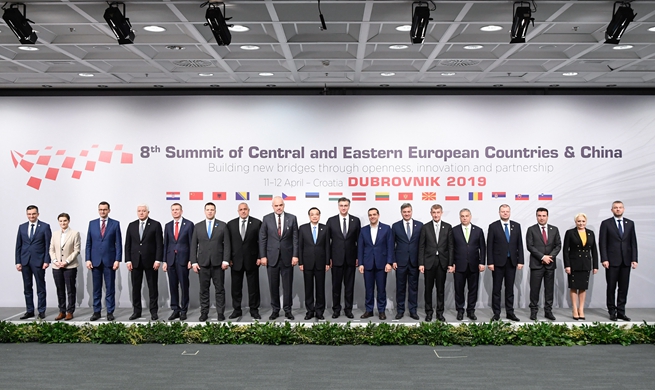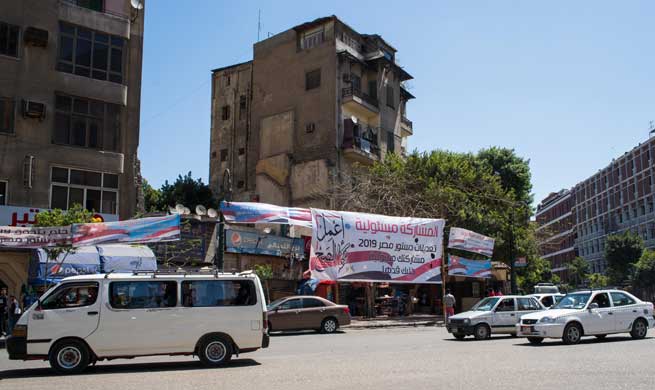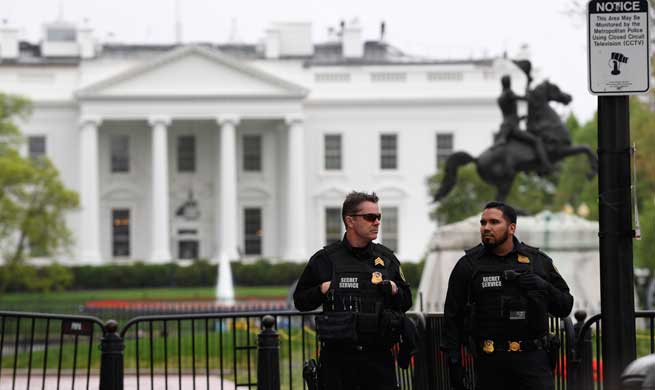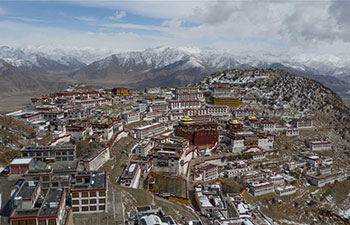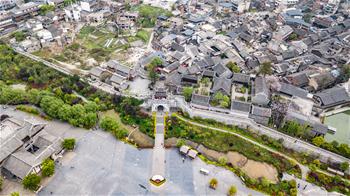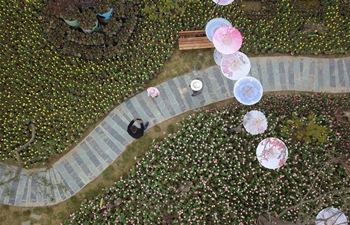UNITED NATIONS, April 12 (Xinhua) -- Twenty-five years after the Rwanda genocide, a candle-lit commemoration was held at the UN headquarters on Friday, with caution against xenophobia, racism and denial of the tragedy dominating the theme.
After lights were dimmed in the UN General Assembly hall, UN Secretary-General Antonio Guterres and Rwandan President Paul Kagame, among other UN and Rwandan representatives, lit up the candles near the podium. Delegates of UN member states switched "ablaze" the imitation candles in front of their seats.
April 7 marks the start of the 1994 genocide in Rwanda which lasted for about 100 days to mid-July 1994 and killed more than one million people, overwhelmingly Tutsi.
In 2003, the UN General Assembly designated April 7 as the International Day of Reflection on the Genocide in Rwanda.
In 2018, the assembly amended the title of the annual observance to the International Day of Reflection on the 1994 Genocide against the Tutsi in Rwanda, recalling also that Hutu and others who opposed it were killed.
"On this Day, we honor those who were murdered and reflect on the suffering and resilience of those who survived," Guterres said. "Today we stand in solidarity with the people of Rwanda."
He warned: "As we renew our resolve to prevent such atrocities from ever happening again, we are seeing dangerous trends of rising xenophobia, racism and intolerance in many parts of the world."
Particularly, he pointed to the current widespread proliferation of hate speech and incitement to violence, things that were very clearly present in Rwanda immediately before the genocide.
The UN chief called on political, religious and civil society leaders to reject hate speech and discrimination, and to work vigorously to address and mitigate the root causes that undermine social cohesion and create conditions for hatred and intolerance.
Kagame, on his part, stressed "remembrance is an act of honor," and that honor should go to the victims, the courage of the survivors, and the manner in which the Rwandans have come to rebuild their nation.
Remembrance is also an act of prevention, he said. "When genocide is dormant, it takes the form of denial and trivialization... Countering denial is essential for breaking the cycle and preventing any recurrence."
In the same vein, UN General Assembly President Maria Fernanda Espinosa Garces recalled when "hundreds and thousands of people were orphaned, widowed, raped, injured or forcibly displaced," the international community watched in horror but did not prevent the atrocities.
She said while the international community is discussing what should have been done to prevent the genocide, "let us condemn all forms and manifestations of the denial of genocide."
"Let us invest in education to enshrine the lessons of our past in future generations," Espinosa added. "Let us redouble our efforts to fight hate speech, and call out those who dehumanize others."
After an interlude performed by a quintet of musicians from the UN Staff Recreation Council symphony orchestra, two survivors of the genocide shared their personal experiences of horror, trauma and recovery, as well as vision and hope.
Both the survivors thanked Kagame, who controlled an army back then, for contributing to the cessation of the killings.
Esther Mujawayo-Keiner, a therapist and co-founder of Association of Widows of April's Genocide, said: "You (Kagame) saved our lives. You saved my life along with my daughters. You saved the lives of many widows and orphans."
She lamented the fact that the United Nations could have made a difference 25 years ago, "if the Tutsi had been considered human beings with value, and if the Geneva convention had been taken seriously."
Recounting her own story, she said: "I hope that no one will ever have to flee again with a baby on their back. That is the mission of the United Nations. We must act so that this never happens again."
At the beginning of the ceremony, a video was played showing other survivors telling their pain and hope. It also talked about the recovery and reconstruction of the African country from the trauma left by the genocide.
Guterres spotlighted Rwanda's achievements since the tragedy, saying its path is "a rightful source of pride and comfort for the people and Government of Rwanda."
He noted Rwanda is now the fourth largest contributor to UN peacekeeping operations and leads in woman leadership with 60 percent of its parliamentary seats held by female lawmakers.
As a pioneer in banning single-use plastic bags, the country is now one of the cleanest nations on Earth, he said.
"In all, Rwanda's experience holds so many lessons for humanity," he said. "From the darkest depths, the country has risen in a quarter century as a pioneer for the sustainable future we all strive for."
For several years, Rwanda has been among the top five troop contributors of the UN peacekeeping operations, said Kagame.
He pledged: "We intend to maintain this commitment, but one that does not only contribute soldiers and police. We come to the task with the values instilled by our tragic history."





